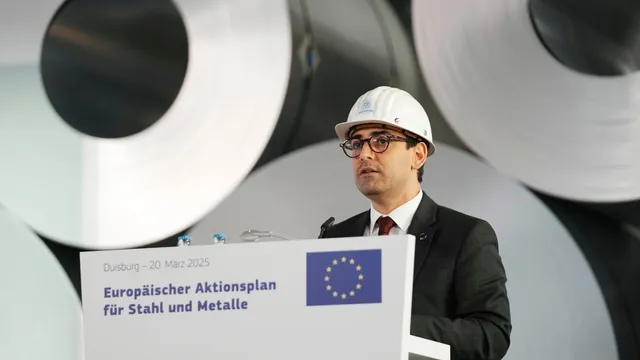
EU approves 47 strategic projects to secure critical raw materials
2025-03-27 19:46- The European Commission has identified 47 strategic projects across 13 EU member states to improve domestic production of critical raw materials.
- This initiative is aimed at reducing reliance on external suppliers and ensuring a sustainable supply chain for essential materials.
- The 47 projects, including seven located in Spain, represent a significant investment towards strengthening the EU's raw materials value chain.
Express your sentiment!
Insights
The European Commission announced a comprehensive initiative focused on strengthening the EU's supply of critical raw materials by supporting 47 strategic projects across 13 member states. This decision is part of a broader effort to reduce dependence on imports, especially from countries like China, and to fortify the European raw materials value chain. The identified projects cover a range of essential materials, including lithium, cobalt, nickel, and tungsten, which are vital for the automotive industry and the production of electric batteries. The overall investment required for launching these projects is projected to be around 22 billion euros. The initiative is timely as European nations seek to navigate ongoing geopolitical challenges and the pressing need for sustainability in industrial practices. Vice President of Industrial Strategy, Stéphane Séjourné, emphasized the importance of domestic production of these materials for achieving decarbonization goals and ensuring the EU’s independent supply chains. The commission aims to ensure that, by 2030, a significant percentage of such materials — 10% for extraction, 40% for processing, and 25% for recycling — will come from within the EU itself. By addressing this issue now, the EU aims to build a resilient supply chain that does not replicate past dependencies on foreign energy sources. Among the 47 approved projects, seven are specifically located in Spain, focusing on mineral extraction, primarily aimed at lithium and tungsten. For example, notable projects include the Las Navas mining project in Extremadura and the Aguablanca mine, which targets multiple metals, including cobalt and nickel. Another initiative, the CirCular project based in Andalusia, aims to improve copper, nickel, and platinum metal recycling, highlighting the EU's commitment to not only sourcing materials but also enhancing recycling capabilities. This well-rounded strategy aims for a sustainable future in the EU’s raw materials sector. The legislative framework established through the Critical Raw Materials Act (CRMA) is crucial for ensuring the swift execution of these projects. The act streamlines licensing processes, setting a maximum timeframe of 27 months for mining projects and 15 months for others, significantly reducing previous timelines which often extended five to ten years. This initiative reflects a milestone for European sovereignty within the industrial domain, enabling the EU to regain control over its raw material resources while also addressing environmental, social, and governance issues in mining activities. In summary, through these strategic projects, the European Commission aims to build a sustainable future, minimize reliance on external suppliers, and meet ambitious environmental targets by 2030.
Contexts
The European Union is increasingly recognizing the strategic importance of critical raw materials in ensuring economic growth, technological advancement, and environmental sustainability. In response to the volatile global supply chains and the urgent need for resource independence, the European Union has proposed the Critical Raw Materials Act. This legislative framework aims to secure the supply of essential materials that are crucial for the EU's transition to a greener, digital economy and its geopolitical stability. It outlines comprehensive measures to enhance the EU's resilience by diversifying sources, streamlining extraction processes, and promoting recycling and re-use of critical materials. As part of the Critical Raw Materials Act, the EU will identify and categorize critical raw materials that are vital for the success of its industrial sectors, including renewable energy technologies, electric vehicles, and digital services. The act emphasizes the importance of strategic partnerships with third countries rich in these resources while also fostering intra-EU cooperation to develop domestic mining, refining, and recycling capabilities. This dual approach aims to mitigate supply risks while ensuring that the EU remains competitive in the global marketplace. Another significant aspect of the Critical Raw Materials Act is its focus on innovation and sustainability. The legislation promotes research and development initiatives aimed at improving resource efficiency and reducing environmental impact throughout the material lifecycle. By supporting new technologies and sustainable practices, the EU aims to minimize the ecological footprint associated with the extraction and processing of critical raw materials. This forward-thinking approach reflects the EU's commitment to the Green Deal and other initiatives aimed at achieving climate neutrality by 2050. Through the implementation of the Critical Raw Materials Act, the European Union seeks to position itself as a leader in the global transition to a sustainable economy. By addressing the challenges associated with resource dependency and supply chain vulnerabilities, the EU aims to safeguard its industrial competitiveness while also contributing to global environmental goals. The act represents a significant step towards securing the materials needed for future innovations and ensuring the long-term prosperity of the European economy.